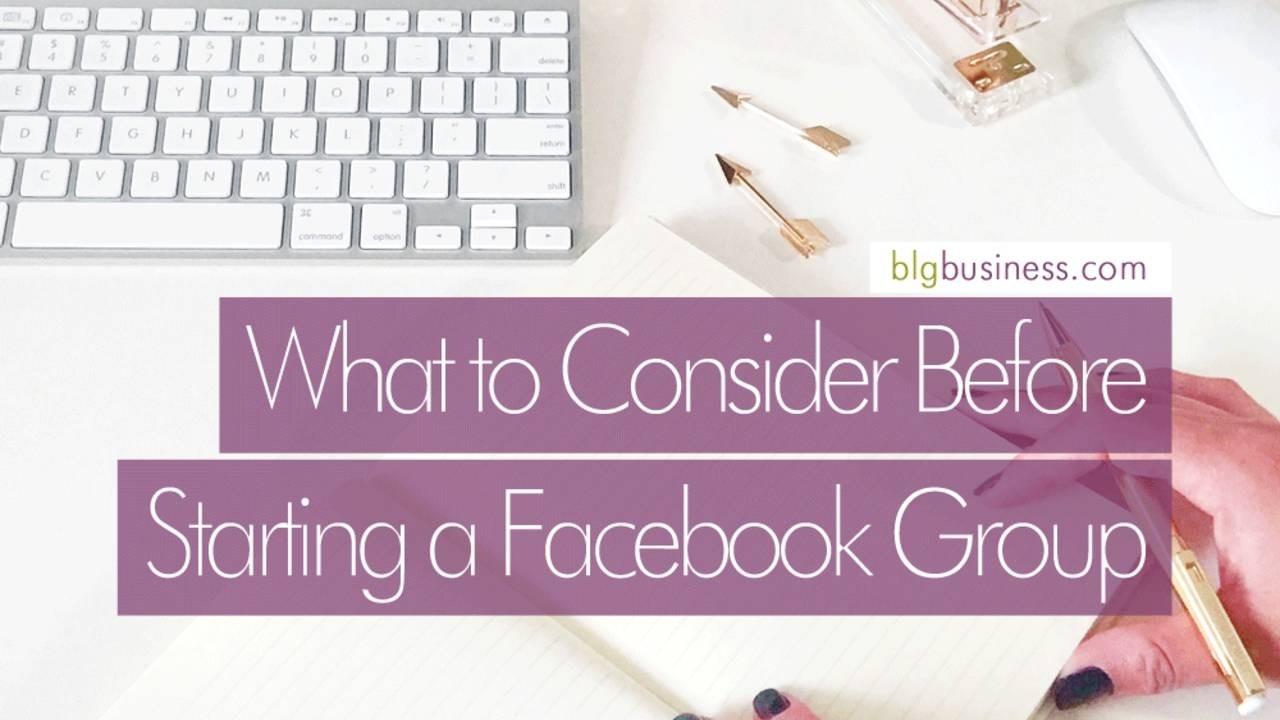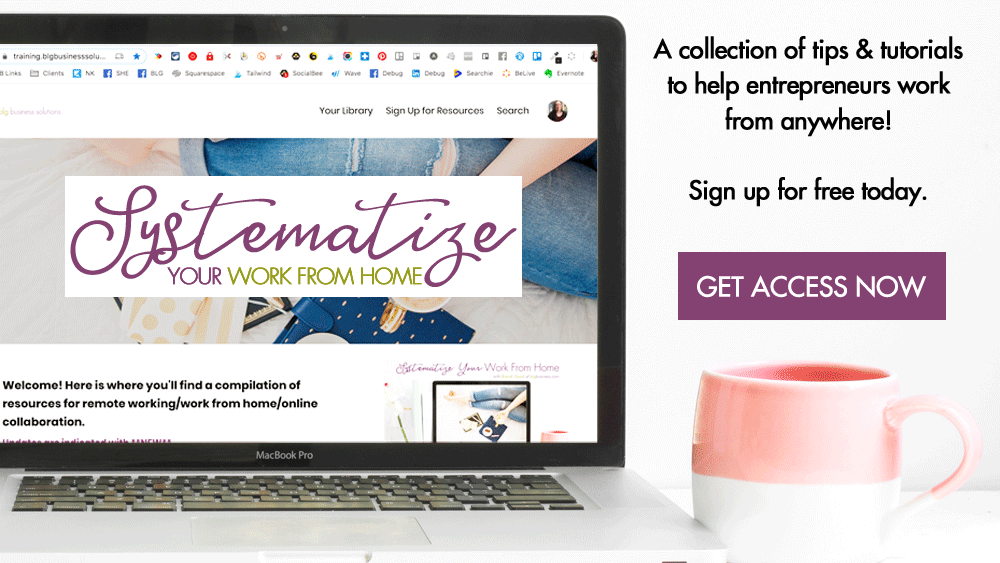What to Consider Before Starting a Facebook Group

A Facebook Group can be an amazing tool for building community, getting to know your audience on a more personal level, providing value, and promoting your business. Groups are getting a lot of attention and so Facebook is on a roll adding new features such as groups for pages, group insights, and more to come. Groups have also gotten a lot of attention recently when several huge groups run by very successful business owners were suddenly shut down. So are groups a good marketing tool or not? Let’s talk about the strategies behind a successful group and whether or not it would be a good fit for you and your business.
Heads up! This post contains affiliate links, marked with an asterisk. If you sign up through one of those links you won't pay anything extra (sometimes you’ll even get a discount or bonus!), but I'll get a small commission or credit that helps me to keep delivering this awesome free content to you! I only recommend tools that I use and trust. Read my affiliate disclosure here.
Do you have time to moderate a group?
When you’re thinking of a group, don’t think of it as an addition to Facebook - think of it as it’s own separate account, entity, or social media network - it’s going to take just as much (if not more) time to grow into a successful online space.
The quieter your group is, the more time you will have to spend creating and curating content, and posting things that will engage your group members - this is often what happens when groups are first created, so if you can help it, don’t start a group when you’re having your busiest month (unless you’ve created your content and strategy ahead of time!).
Then imagine you have a larger, active group - how much time will you have each day to spend in the group reading posts and answering questions? Will you need additional moderators?
Will you moderate as yourself or as your page?
Business pages can now admin groups, which means that you can post as your business profile instead of your personal profile.
This is great if you are striving to keep your personal and professional entities very separate. No matter what you decide, try to stay consistent, especially if your business profile name and picture are very different - this can be confusing for members in terms of recognizing your posts and knowing who to tag for help.
What is the purpose behind your group?
This question is two-fold:
-
What will your group members get out of being a part of your group?
-
How does your group fit into your overall marketing strategy and goals?
You may be creating a group as a support or coaching community as part of a specific event, product, program, or course that you’re selling. In a case like this, your purpose is straightforward. However when that is not the case, you’ll need to spend some time really thinking about it.
The purpose of your group, from the members perspective, has to be different from your page. In general, when someone joins a group they have a closer relationship with you (electronically speaking) than just being a fan on your page. This means they may expect more in depth or special information from you. They may also be looking to network and get additional support from like-minded people. And to make things easier for everyone, make sure that your group topic is clear and specific - otherwise you could end up with a free-for-all.
From a business or marketing perspective, how does the group fit into your overall strategy? How does it compliment what you’re already doing? Will you use it to generate brand loyalty? To promote your products and services? To list build? To find brand ambassadors? All of the above?
If you are thinking of creating a group and your only rationale is because some big name marketer said it was a good idea - STOP.
What are you going to talk about?
One of the most important things here is to make sure that you are not just copy/pasting posts from your business page into your group - people will quickly tire of seeing the same thing twice and will unfollow either your page or your group.
If you have not defined the purpose of your group, figuring that out first will help you with this question. Here are some prompts to get you going on your posts:
-
Will you have theme days relating to your business or your member interests?
-
Is there information that you would like to know about your group members?
-
Can you share valuable information about your products or services or your industry if relevant?
How will you promote your group?
It seems pretty clear to me that one day soon you’ll be able to have “Facebook Group” as an ad objective inside of the FB Ads Manager. As of this time of writing however, most people are promoting their groups the “old fashioned way”: online word of mouth, cross-promotion with complementary groups, social media & email marketing.
If your group is not part of a program or course that people are already signing up for, how are you going to get them to click that Join button? Will the group become your free opt-in? Or will it be a step in your marketing funnel after they sign up or register for something?
What do you need to know before people join?
You can ask potential members up to 3 questions when they join - is there anything that you have to know or would like to know before clicking the Approve button? Many group moderators use this to vet or verify that the potential member really belongs in the group and is not just a spammer. Here are some common examples:
-
Asking to acknowledge that they read the group rules
-
Asking for an email address to be added to a mailing list
-
Asking to provide a website or social media link to check them out
-
Asking them what they want to get out of the group
-
Asking for a short description of their business
There will be a portion of people who simply don’t answer your question(s) - what will you do with these requests?
What will your group rules be?
The point of having group rules is to make them so clear that you will never need to enforce them because everyone gets it. Think about anything that you may not be comfortable with (like the ideas below) and decide if you need to lay down some rules around these things.
-
All group members have the ability to go live inside your group - do you want them to do that?
-
Do you want members to be able to promote themselves? If yes, is it at anytime, or only on specific posts that you create? (Consider that your group members could potentially be your competitors)
-
Do you want members to be able to promote other Facebook groups?
-
Do you want members to be able to post their own affiliate links?
-
Under what circumstances would you remove a member from the group? Do they get a warning?
One last thing to note…
In everything you do with social media, it’s important to remember that social media marketing is all taking place on borrowed land. You own your website. You own your mailing list. You *don’t* own your social media account. If something crazy were to happen and your Facebook group got shut down, you have lost those contacts. You need to make an effort to entice your social media audience to connect with you in an additional way so that you are still able to contact them in the event that your social media profile or site goes *poof*.







